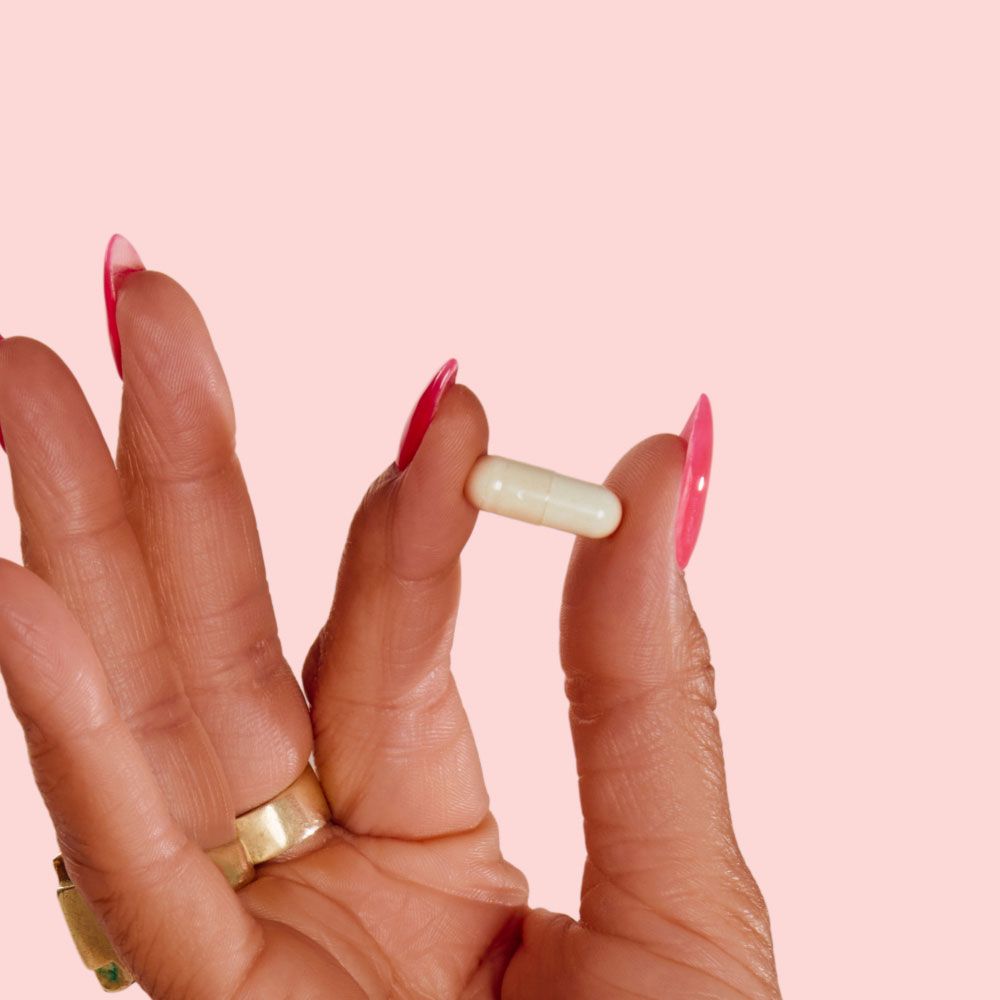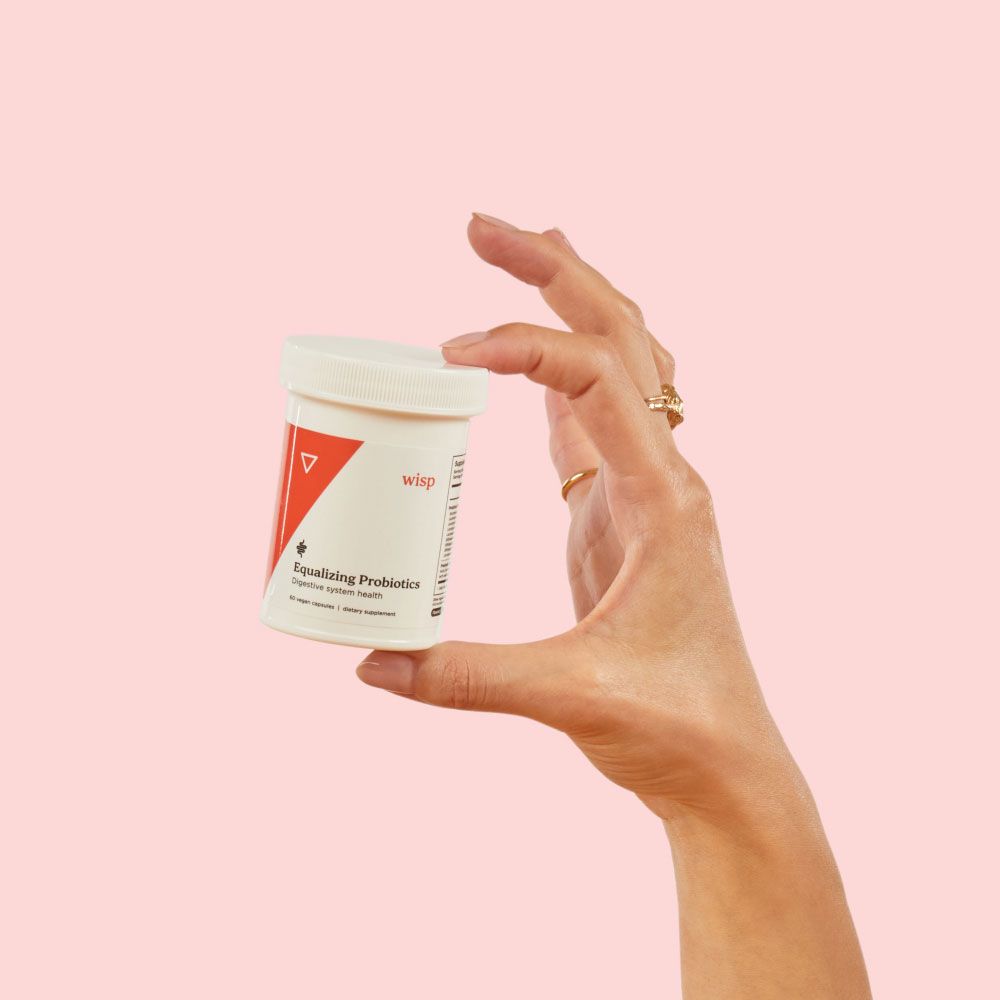
Why Is My Vagina Itching?
By Lizzie De La Cruz
August 9, 2024
Vagina Itches
It's the type of itchiness that follows you to bed, haunts your dreams and wakes you up in the morning before your alarm—oh, itchy vagina, I hate you more than jetlag, the flu and sunburns combined!
When you're itchin' down below, that itch that just never feels scratched is generally known as, "vaginitis," and is the result of inflammation in the body. Now, before you jump to conclusions, yes, it may be a sign of an STI, but the most important thing to remember is that there are numerous causes for an itchy vag and most of them can be remedied easily.
That annoying, persistent itch is likely the result of changes in your pH due to an increase in vaginal bacteria or yeast. The main risk of any vaginal inflammation that goes undiagnosed is an increased risk of getting an STD, but as long as you get treatment quickly, you should be ok!
So, to help put your mind at ease (and think about something other than the scratching) let's take a look at some of the other common causes of vaginal itching.
Yeast Infection
A yeast infection is the result of an overgrowth of a type of fungus known as Candida, or yeast, and causes itching, irritation and discharge. Some common yeast infection symptoms that may signal you've got a little too much fungus down there include:
- Redness and swelling
- Pain and soreness
- Rash
- White or yellow cottage cheese-like discharge
If you're feeling a bit yeasty, worry not—there are plenty of yeast infection treatments available online! Get rid of your yeast infection quickly and effectively with prescription antifungal treatment, which should start working on those itchy symptoms within 24 hours.
If you’re dealing with recurring yeast infections, it might be time to restore balance to your vaginal microbiome! Boric acid suppositories fight against yeast infections naturally by keeping your vagina nice and acidic, especially useful when taken after sex. Add in Wisp’s Equalizing Probiotics to your daily routine and itchy vaginal infections will have nothing on you. 💅
Bacterial Vaginosis
Bacterial vaginosis (BV) is an infection caused by a change in the vagina's typical balance of bacteria. This is different from a yeast infection, and BV often causes only mild symptoms (that are often ignored). However, about 50% of the time, women experience prominent itching and irritation, as well as:
- Burning during urination
- Fishy odor
- Thin discharge (often white, gray or green)
Not a fan of smelling like seafood? BV can be easily remedied with prescription medication that begins working in 24 hours. In addition, wisp offers a variety of BV home remedies to help you self-manage these symptoms.
Bacterial Vaginosis may seem like it falls in the "nice to get rid of" rather than the "must get rid of" category of health, but ignoring BV can lead to long-term health complications, including infertility and Pelvic Inflammatory Disease (PID). That’s why it’s sooo important to test for BV and stomp this infection out! There are a few different ways to test for BV, with the most comprehensive being a vaginal microbiome test.
BV can be easily remedied with prescription antibiotics that begin working in 24 hours and are available in both a tablet and a gel.
Similar to yeast, it’s common to have recurring BV infections. But, you can keep BV from coming back by giving the good bacteria in your microbiome a helping hand! Boric acid suppositories and probiotics are a superstar team of vaginal health and can keep itchy nasties from ruining your day.

BV Antibiotics (Tablets or Gel)
Starting at $15
Request topical or oral prescription antibiotics to treat bacterial vaginosis.

Boric Acid Suppositories
Starting at $27
An over-the-counter vaginal suppository custom-made to help prevent & relieve infections.

Wisp Equalizing Probiotics
Starting at $18/ month
The Wisp Equalizing Probiotics is a daily supplement that contains 25 billion CFU’s of 9 powerhouse probiotic strains (more “good” bacteria!).

Diflucan, Generic Fluconazole (Yeast Antifungals)
Starting at $45
Prescription antifungals used to treat vaginal yeast infections
Sexually Transmitted Infections
Sexually-transmitted infections (STIs) are often stigmatized by "grown-up-high-schoolers" who never grew out of the "ewww" phase of childhood—but they're mostly curable, and all are manageable with proper treatment! Let's take a look at some of the most common STIs that can cause itching:
Genital Herpes
Genital herpes is a very common sexually transmitted disease. According to the Centers for Disease Control and Prevention (CDC), more than one in every six humans from ages 14 to 49 have genital herpes—and a majority of them only experience mild or infrequent symptoms that they mistake for something else (pimples or acne, blisters, etc.). However, if you've got an itch down there, take a minute to consider if you have any of the other following symptoms:
- Small blisters/sores
- Flu-like symptoms
- Fever
- Swollen lymph nodes
If these symptoms check out, you may have genital herpes. While there is no cure for herpes yet, it is a very common and manageable condition to treat. Wisp offers affordable medication and all-natural herpes remedies to help you get rid of herpes symptoms now, prevent future outbreaks and reduce the risk of passing the virus on to sexual partners.
Chlamydia
Chlamydia is another very common STI whose symptoms are often mistaken to be something else. If you experience vaginal itching, you shouldn't immediately rule it out, especially if you are also experiencing any of the following:
- Abnormal discharge
- Spotting/bleeding
- Pelvic pain/cramping
- Fever
- It hurts when you pee
If you think you’ve been exposed to chlamydia, we’ve got you! First things first, you can take an at-home STD test that checks for chlamydia, gonorrhea, and trichomoniasis–three of the most common STDs. Then, get started on treatment with prescription chlamydia treatment available online. Say buh-bye to your itchy symptoms with no waiting room required!
Gonorrhea
Gonorrhea is a bacterial infection caused by Neisseria gonorrhoeae. Gonorrhea symptoms can range from mild and unnoticeable to severe and painful in advanced stages. If you experience the following symptoms in addition to vaginal itching, you may have acquired the gonorrhea infection during sex:
- Burning during urination
- Spotting/bleeding
- Vaginal discharge
- It hurts when you have sex
Like all STIs, getting tested is the best place to start. But, if you are confident you were exposed, treatment can begin with prescription antibiotics so you can get back to being itch-free in no time. Get started with at-home gonorrhea treatment here!
Pssst: did you know that there’s a morning-after pill for STIs like gonorrhea and chlamydia? Oh yeah, you read that right. If you think you’ve been exposed, take DoxyPep for STI prevention ASAP to reduce your risk of infection.
Trichomoniasis
Trichomoniasis is a sexually transmitted parasitic infection, caused by the parasite Trichomonas Vaginalis. Trich is one of the most common STIs in the United States and is completely curable with a course of antibiotics! Check out our checklist of trich-y symptoms:
- Vaginal burning and irritation
- Burning during urination
- A fishy-smelling discharge
We’ve said it before and we’ll say it again: if you think you’ve been exposed to trich or another STD, go on and get tested! Wisp offers online prescription antibiotic trichomoniasis treatment available for same-day pickup.
Pubic Lice
Pubic lice are small insects that infest the genital area, typically within the pubic hair. You'll probably experience intense itching that often gets worse at night. As with any itching, give yourself a visual inspection to see if you notice anything crawling around down there. Along with visible insects, you may also have:
- Fever
- Fatigue
- Pale bluish marks/insect bites
Not a fan of creepy crawlies? You can get rid of pubic lice using over-the-counter remedies, such as lotions and shampoos. It is also recommended that you clean your home and wash your bed sheets to prevent recurrence.
Underlying Skin Conditions
While there are many conditions caused by infection, there are also some you're simply born with and that are completely normal. Take a look at some common underlying skin conditions that could be the source of that itch:
Lichen Sclerosis
Lichen sclerosis is a skin condition that manifests as thinning, white and patchy skin. The condition is not permanent, and it can be treated with ointment or creams that can help calm the skin and reduce the risk of scarring. The condition can recur, but it does not typically pose a major health risk.
Psoriasis
Psoriasis is a skin condition that causes patchy, bumpy or scaly skin. It is essentially caused by skin cells multiplying up to 10 times faster than average as an immune system response, and it can occur anywhere on the body. This condition is not contagious, and there are a variety of treatment options available that can greatly reduce symptoms.
Eczema
Eczema is a blanket term for skin conditions that cause irritation or inflammation. In most cases, it is referring to atopic eczema, which is triggered by an allergic reaction. Eczema is not contagious and typically causes patches of itchy, red skin. You can manage this lifelong condition with holistic methods, such as lotions and creams and avoidance of allergens that are known to cause breakouts.
Other Causes of Vaginal Itching
Itching can be a major indicator of potential health risks and should be taken seriously. Many cases of vaginal itching are caused by sexual contact, poor hygiene or underlying infections, but it's important not to jump to conclusions without consulting with a healthcare professional. For example, the following conditions can all lead to an itchy vagina:
- Low estrogen levels
- Foreign object in vagina (tampon, condom, etc.)
- An intrauterine device (IUD)
- Certain medications (including antibiotics)
- Moist or skin-tight clothing
- Allergens/skin irritants (soaps, perfumes, chemicals, etc.)
- Diabetes
- Cervical or vulvar cancer
Always Consult With a Medical Provider
It is important to remember that many causes of vaginal itching are not necessarily due to underlying disease or infection, and many can be easily cured or managed. Visit your gynecologist, connect with a provider online, or take an STI test or vaginal microbiome test to help determine your symptoms and move past the itch.
Get STI and STD Treatment Online

At-Home Vaginal Microbiome Screen by Daye
$125
Understand your vaginal microbiome balance and risk of infections using a non-invasive at-home tampon collection kit.




